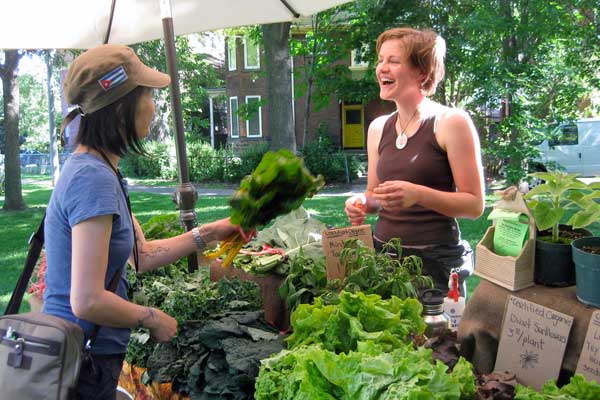
Food and the fate of cities: what governments, citizens can do
Published: July 23, 2014
The University of Toronto’s New College recently announced that food policy analyst Wayne Roberts will be its first-ever Food Studies visiting scholar for the upcoming academic year.
This honorary position means that Roberts is readily available to students and instructors to discuss issues such as food and city building and global food movements.
Roberts is best known as the author of 12 books, including most recently Food for City Building, and has been involved with non-profit organizations such as the Toronto Food Policy Council and Foodshare.
Writer Dominic Ali caught up with Roberts via e-mail to learn more about the connection between food policies and Canada’s cities.
Why is food such an important issue for today’s urban residents?
There's widespread interest in food today because everyone faces some food problem or other -- obesity, allergies, food safety, concern about the overuse of antibiotics with livestock, worry about the threats to pollinators, anxiety about the impact of speculators on food prices, fear about climate change, as well as the persistence of hunger, even in wealthy countries such as Canada.
Equally important, people are not only worried about food, but also excited about how it can create health, community, new areas of employment, and so on. The positives attract many students and help explain why the food movement is basically a youth movement.
How can food policies improve cities?
Constitutionally, food and agriculture have been mostly assigned to national governments, because early nation states saw food as part of national security and central to preparing for or conducting war. An army crawls on its belly, Napoleon said; he pioneered canned foods for the French army invading Russia. Britain became a world superpower because its navy could block food imports to countries Britain was at war with.
Today’s national governments have reneged on supervising the connection between food and health. They can't even regulate obviously pressing issues, such as salt levels in processed foods and the pervasiveness of junk food advertising to children.
So cities are stepping into the vacuum by seizing on issues of the day, such as farmers markets to promote local foods and other programs to respond to hunger and obesity.
How can cities improve their food policies?
Cities can do almost anything they set their minds to on food. They have no explicit power to do anything, but there is no prohibition stopping them from doing a whole range of things.
In a 2001 report for Toronto's Food and Hunger Action Committee, I outlined four areas of low-cost city activities:
- Cities can advocate – for better regulation of GE foods or protection of children from ads, for example
- Cities can coordinate – by using already-existing spaces or buildings to help make things happen, such as community gardens in parks
- Cities can support – by providing city staff with rototillers to break ground for community gardens near seniors' residences, for example
- Cities can innovate – by promoting green roofs where food can be grown, or by licensing food trucks to serve healthy food in under-served or low-income communities.
I missed one big option back then, which I now emphasize: Cities can facilitate. They can make it easier for people to change, cut back on the red tape it takes to have simple things such as community baking ovens in parks, or healthy food trucks in underserved areas.
What can individuals do?
A typical person in North America makes about 300 food-related decisions each day. Shall I eat toast with butter or with olive oil? Shall I take my reusable coffee mug or add to the pile of disposable coffee cups?
Pick any one of your poor decisions, and work on making a good decision a habit, then start on a second one. Aim for 10 habits a year.
The lovely thing about food is that consistent tiny changes add up quickly.
Dominic Ali is a writer with University Relations at the University of Toronto.



